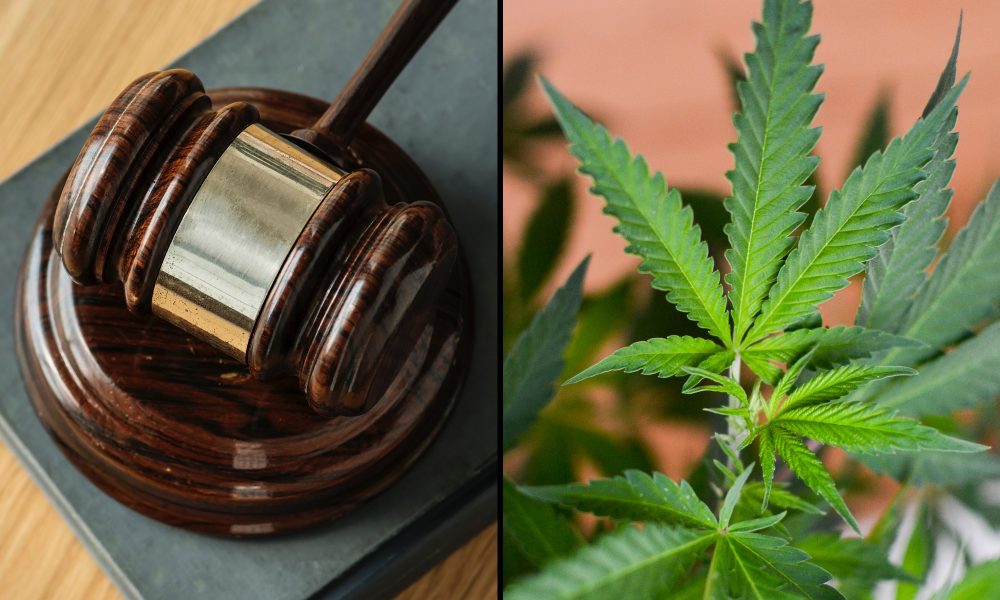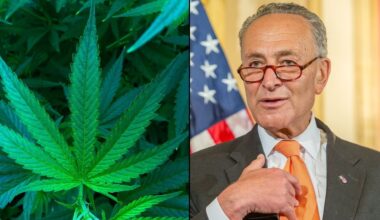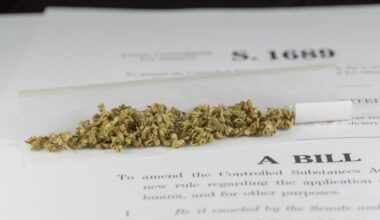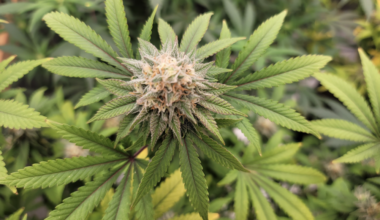“How can we pass a new law, which says that marijuana possession is no longer a crime, yet leave so many serving long sentences for that former crime in prison?”
By Craig Cesal
In 2002 I was convicted of conspiring to distribute marijuana, and although no person was hurt, I was sentenced to life imprisonment without the possibility of parole. Many people reached out on my behalf to President Trump, and on his last day in office, he commuted my sentence to time served.
As I exited, my cellmate Joel looked dejected. He was left behind to serve his new eighteen-year sentence for marijuana.
I currently correspond with over 220 federal marijuana prisoners, and I am working to bring to them the same assistance that brought me home.
Imagine being in prison for a crime that most Americans think is legal. Why wouldn’t they? That’s what the headlines say. They see cannabis dispensaries in their neighborhoods, or in the states nearby each and every day.
Many federal marijuana prisoners want to yell out to them.
I know how these prisoners feel, and I will not quit fighting until they are all home, and can go to the dispensary themselves as well.
What’s Wrong with the Cannabis Administration and Opportunity Act (CAOA)?
Last week the Cannabis Administration and Opportunity Act (CAOA) was filed in the United States Senate. Although it is marketed as providing relief to those federally imprisoned for marijuana, its provisions will only provide relief to a select few.
For instance, Joel and his wife, Valerie, will receive no relief under the “retroactive” provisions of the bill, since after their arrest a gun was found in their car. Despite the fact that they did not point or fire the gun.
Others who I correspond with daily have additional counts of conviction because they spent some of the proceeds from distributing marijuana. Likewise, they bear convictions for money laundering.
Many of these folks would also receive no relief if the bill is enacted as written.
The bill provides that if the marijuana prisoner also has another count of conviction—such as being a felon in possession of a firearm, or possessing the firearm while possessing marijuana or laundering the proceeds—they are generally precluded from relief. Even if no violent act was committed. The mere act of having the gun in the same home is enough to earn a firearm count of conviction.
The problematic section of the bill is at page 19 which states: “The sentencing court shall enter an order vacating the conviction and sentence for any individual convicted or sentenced…for any offense involving marijuana, or THC…and who is not serving a sentence for any conduct not covered by the act or serving multiple sentences.”
In light of this provision, if the prisoner is also serving a sentence for laundering the proceeds, possessing a gun or importing the marijuana, they would receive no relief.
Prisoners would continue to serve their sentences for conduct which could no longer be charged as a crime. It would no longer be illegal to spend marijuana proceeds, possess a firearm in the same home as marijuana or even possess imported marijuana—but our federal prisons would still incarcerate people who previously committed these now-legal acts.
The bill provides that a person serving a sentence unrelated to a marijuana offense, but where their sentence was enhanced based on a prior conviction for marijuana, can ask the court to reduce their sentence if the prior conviction is vacated. This is proper, but provides no relief to those imprisoned for the marijuana, who also have another count of conviction, which is not a marijuana conviction such as a gun charge or money laundering. If a violent crime was committed, that criminal conviction should remain, as it does not rely upon marijuana being illegal. But other non-violent crimes that cannot exist after marijuana is permitted cannot stand.
I believe that all counts of conviction that rely on marijuana having been illegal—such as possessing a gun and marijuana, laundering marijuana proceeds and more—should be vacated as well. If these charges could no longer be brought if marijuana is not an illegal controlled substance, then that count of conviction must be vacated, as well as any other conduct that was discovered or charged as part of the marijuana investigation and prosecution. Fair is fair.
The bill, although it is not its intention, would leave many in prison for conduct which could no longer be charged as a crime. All of these people must be guaranteed relief as well, and I will fight for them until they are all home.
When it comes to the gun issue, the United States Sentencing Commission 2021 report has determined that three-fourths of those who possessed both marijuana and a firearm were Black.
The results of these charging decisions, for whatever the reason, leave many Black marijuana prisoners without the possibility of relief under the bill.
Just think, not long ago, I was sitting on my bunk in the federal prison at Terre Haute, Indiana. During the COVID lockdown, I watched “60 Minutes” through my cell window. The special was about our nation’s marijuana grow operations. They showed people with much more marijuana than I, Joel or Valerie ever seen, but we sat in prison while others are getting rich from the same substance.
How can we pass a new law, which says that marijuana possession is no longer a crime, yet leave so many serving long sentences for that former crime in prison?
Especially egregious is that the largest group of marijuana prisoners left behind is disproportionately Black. Many of these inmates are from our inner-cities where it is accepted a person is better to be caught with a firearm, than to be caught without one.
I will continue to consider myself a marijuana prisoner until I can provide relief to every federal marijuana prisoner held for a crime that most Americans do not believe is a crime.
To my knowledge, no prisoner participated in the drafting of this bill, even though they are the most impacted by it. I ask that I be allowed a seat at the discussion table so that actual marijuana prisoners will be represented and considered in the legalization discussion.
I speak with many, many marijuana prisoners, their families and even their attorneys every day. It is vital that their voices should be heard in the hearings which will determine which people will stay in prison for marijuana, and which will get to go home.
Craig Cesal served time in federal prison after being convicted of conspiring to distribute marijuana. His sentence was commuted by then-President Donald Trump.
Photo elements courtesy of rawpixel and Philip Steffan.
Medical Disclaimer:
The information provided in these blog posts is intended for general informational and educational purposes only. It is not a substitute for professional medical advice, diagnosis, or treatment. Always seek the advice of your physician or other qualified healthcare provider with any questions you may have regarding a medical condition. The use of any information provided in these blog posts is solely at your own risk. The authors and the website do not recommend or endorse any specific products, treatments, or procedures mentioned. Reliance on any information in these blog posts is solely at your own discretion.







